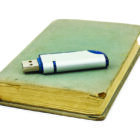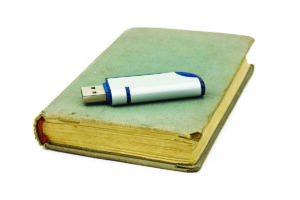
May 29, 2020
By Rev. Nicholas J. Kersten
Director of Education and History
In this month’s column, I’d like to gently nudge all of you. In this COVID season, things are moving both very quickly and exceedingly slowly, depending on your vantage. Because of a lack of good information, the situation around medical, governmental and economic reactions to the pandemic seemingly changes by the day. At the same time, many things seem to be stuck in suspended animation as we wait, many of us staying at home for much of the past several weeks, socially distancing and waiting for things to return to normal.
That leads to my nudge. All of our churches and lives have undergone a variety of adjustments over this past couple of months. Whole systems and ways of being have been set aside and new things have been taken up. Many of our churches have leaped to the world of broadcasting or recording services and regular Zoom meetings. (How many of us even knew what that meant 3 months ago?) The speed of change at this point and the issues that so many of our churches have addressed in those changes is unprecedented. Future generations will undoubtedly want to know about our actions in this time. If they went to look for some record of the way your church has traversed these times, what would they find? If you haven’t taken a moment to record and preserve the record of how your church has responded in this time, it’s time to start thinking about that.
History is best kept as it is made. The most evocative and useful pieces for recording history are those records and artifacts which are closest to the events. If you and your church are not keeping copies of communications about the crisis, records of the meetings where the important decisions were made, and copies of the digital things you are now producing, the time to think about that is now, before the memories are lost or the hard drives are fried or discarded. Here are a few suggestions for you as you gather resources to tell the story of how SDBs responded to COVID-19 in this season.
1. Create a file or depository for important material.
This doesn’t need to be fancy. At this point, as I am doing this for our Conference, I have a paper file folder where I am just shoving copies of things I am encountering. I also have a tag in my email for COVID-19, and if anything comes through that relates to it, I am tagging it so I can go back and find it later. I have a file in the cloud for digital material similarly titled. If you have a place to keep it, you can start collecting.
2. Keep things even if you’re not sure they’re important.
Don’t worry about sorting right now. In this season, it’s hard to know what might be useful or important. Some meetings that seem important may not be in the long term. Some things that happened quietly by email may end up being important later! Just collect it all in your containers, and you can sort it later. If you don’t save it, there will be nothing TO sort later!
3. Tangle with the digital monster.
At archives all across the country for the last decade, trained archivists have been asking about how they can preserve things like streamed Facebook videos and websites. They don’t have answers, and I don’t either. But what I know is if you never think about trying to preserve some of these things, there will be nothing for future generations to access. Think carefully about trying to save digital things and take some steps to save at least what you can.
4. Be objective and save things across different perspectives.
With the stress and varied information being circulated in these times, it’s inevitable that there may be some differences of opinion about “what it all means.” Ultimately, we don’t know yet, so strive to save information from different perspectives in your congregation, if you have them. This will help people later to understand the issues that you’re addressing! We can leave it to others later to determine who was right and wrong!
(To spoil the ending: usually it’s not as simple as right and wrong—many sides of a debate can have some valid points!)
This can seem like a lot, but I promise you it’s really just being mindful as you go about your normal work in life and church that it might be important later. Add that one extra step to save it so you can find it later!
Let’s leave a good record of how God was moving among us in this season for future generations!


